MercoPress. South Atlantic News Agency
Tag: OPEC
-
Tuesday, December 18th 2018 - 09:35 UTC
Creditors demanding payment of US$ 1.5 billion Venezuelan bond in default

A group of creditors has demanded payment on a US$ 1.5 billion Venezuelan bond that is in default, their lawyer said on Monday, kicking off a long-awaited showdown between creditors and the crisis-wracked OPEC nation. President Nicolas Maduro’s government and state-owned companies owe nearly US$ 8 billion in unpaid interest and principal following this year’s default on bonds amid a hyperinflationary collapse of the country’s once-wealthy socialist economy.
-
Tuesday, December 4th 2018 - 08:41 UTC
Qatar exits OPEC on January to concentrate as world's largest LNG exporter
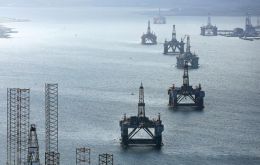
Qatar said it will quit OPEC to focus on gas in a swipe at Saudi Arabia, the de facto leader of the oil exporting group which is trying to show unity in tackling an oil price slide. Doha, one of OPEC’s smallest oil producers but the world’s biggest liquefied natural gas (LNG) exporter, is embroiled in a row with OPEC members Saudi Arabia and the United Arab Emirates.
-
Saturday, November 24th 2018 - 08:59 UTC
Oil price slumps 8% to lowest in more than a year: Crude supply grows faster than demand
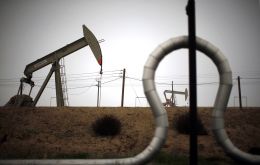
Oil prices slumped up to nearly 8% to the lowest in more than a year on Friday, posting the seventh consecutive weekly loss, amid intensifying fears of a supply glut even as major producers consider cutting output. Oil supply, led by U.S. producers, is growing faster than demand and to prevent a build-up of unused fuel such as the one that emerged in 2015, the Organization of the Petroleum Exporting Countries is expected to start trimming output after a meeting on Dec. 6.
-
Tuesday, November 20th 2018 - 08:43 UTC
Venezuela preparing macroeconomic data to deliver to IMF

Venezuela which is sitting on one of the world’s largest crude oil reserves but which is suffering the worst loss of oil production in history outside of war-induced outages is getting ready to share macroeconomic data with the International Monetary Fund to avoid penalties including possible exclusion from the IMF.
-
Thursday, September 27th 2018 - 08:24 UTC
Iran tells Trump he is responsible for oil price increase: stop interfering in the Middle East

President Donald Trump should stop interfering in the Middle East if he wants the price of oil to stop rising, Iranian Oil Minister Bijan Zanganeh was quoted as saying on Wednesday.
-
Friday, September 14th 2018 - 09:07 UTC
US, the world's top crude oil producer, but global geopolitical uncertainty prevails
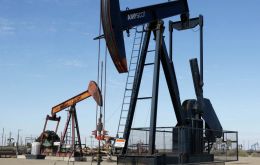
The U.S. Energy Information Administration (EIA) said that the U.S. likely surpassed Saudi Arabia and Russia earlier this year to become the world’s top crude oil producer. The EIA based its disclosure on preliminary estimates in its Short Term Energy Outlook which is released every month.
-
Friday, September 14th 2018 - 08:50 UTC
Maduro in China after more financial support to prop Venezuela's collapsing economy and oil output
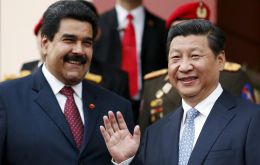
Venezuelan President Nicolas Maduro is travelling to China to discuss economic agreements, as the crisis-struck OPEC nation seeks to convince its key Asian financier to disburse fresh loans.
-
Wednesday, August 22nd 2018 - 08:49 UTC
Oil price war to begin: Saudi Arabia and Iran reignites the market
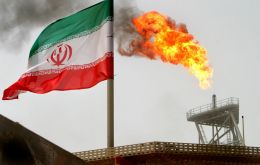
The rivalry between Saudi Arabia and Iran is becoming increasingly evident in the oil pricing policies of the two large Middle Eastern producers. The two countries are currently reigniting the market share and pricing war ahead of the returning U.S. sanctions on Iranian oil.
-
Saturday, July 14th 2018 - 07:48 UTC
Venezuela’s oil crisis gets worse: Production keeps falling

Venezuela’s oil production plunged by another 47,500 barrels per day (bpd) in June, compared to a month earlier. An exodus of workers and field shut downs were reported for the month, pointing to a grim near-term future that could see total production dip below 1 million barrels per day (mb/d) by the end of the year.
-
Friday, July 6th 2018 - 08:16 UTC
The new oil cartel threatening OPEC

When reports emerged that India and China are in talks about forming an oil buyers' club, OPEC was probably too busy with its upcoming June 22 meeting to concern itself with that dangerous alliance. Now, it may be time for it to start worrying.
